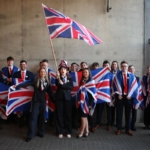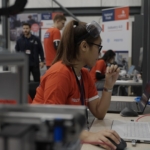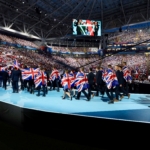Today we join the global celebration that is International Women’s Day. We celebrate the contribution that women make to societies across the world. And the need for this recognition has never been greater. A recent report from the National Commission on Domestic and Sexual Violence and Multiple Disadvantage underlines an inconvenient truth: when women succeed in societies like our own in the UK, they are doing so against the odds. They are doing so despite often highly structured societal barriers that actively curb their progression. It’s worth quoting from the report on this point: ‘Time and time again it was made clear by women that their individual experiences were compounded by a wider system that limited opportunity and failed to offer effective support, and which too often ignored or blamed them for the situations they faced. Women’s experiences are further exacerbated by a current context in which there have been increasing levels of misogynistic, racist, ableist, homophobic and anti-immigrant perspectives, and an attitudinal shift where it has become more socially acceptable to say or do harmful and offensive things. This particularly affects women who are already stigmatised’. This is why our efforts to break down inequality wherever and whenever we see it must always be resolute. It is only through doing this that we will develop the kind of society that allows all women to thrive and achieve their true potential. One group of young women who are showing us the way are the amazingly talented young women of Team UK.
At each of the last two Skills Olympics, the biggest stage for international skills competitions in the world, Team UK’s brightest stars, the gold medal recipients, have been our young women. Rianne Chester’s Sao Paulo Gold in 2015 was replicated by Kaiya Swain two years later in Abu Dhabi; and then, last September at EuroSkills Budapest, Holly-Mae Cotterell completed the golden hat-trick. Rianne, Kaiya, and Holly Mae’s top of the podium performances send an incredibly powerful message to any young woman wanting to follow in their footsteps. It’s a message that was delivered by each of England’s Elizabeth Newcombe, Wales’s Collette Gorvett, Scotland’s Nicolle Finnie and Northern Ireland’s Rebecca Wilson in recent competitions: all of whom have achieved the world-class benchmark. But perhaps where the message has resonated most powerfully over recent months has been with the story of Scotland’s Betsy Crosbie.
Betsy went to the Skills Olympics in Abu Dhabi a couple of years ago to compete in the mechanical engineering competition, a competition where 92% of the participants were male. Now this number in isolation looks fiercely imbalanced; in fact, when you consider NAO statistics that show young women accounting for only 8% of STEM apprenticeships despite accounting for 50% of the total number of apprenticeship starts, the competition in Abu Dhabi reflected exactly where we stand in the UK today. This is far from a happy coincidence. Notwithstanding the odds that faced Betsy, she returned from Abu Dhabi having achieved the world-class standard in her skill. She’s now a full-time CAD engineer, and will, I’m sure, go on to achieve great things in her career. The question we all have to ask ourselves is this: if Betsy was able to overcome the odds in spite of the barriers she faced, and as she will tell you, without the right kind of guidance at school, how many more young women could we see entering into STEM careers if we were prepared to level the playing field?
Part of the way in which we can realise this is by starting in schools and colleges. According to our own research Closing the Gender Gap, young men are 18 percentage points more likely to say they would consider STEM careers, despite young women being as equally qualified to do so. Overturning this imbalance means better careers advice, information and guidance but also something more than the facts: a real-life relatable role-model who has been there, done it, and got the world-class stamp of approval. It’s why our programme of getting Skills Champions like Betsy into schools and colleges and sharing their experiences is such a powerful one. Indeed just this week at City of Glasgow College, Betsy joined our Team UK selection event to speak to college students about her story.
As amazing as Betsy and the other young women of Team UK are, I am clear that if WorldSkills UK is to play its role in breaking down societal barriers and ensuring more young women are able to achieve their potential through apprenticeships and skills then we as an organisation need to up our game considerably. I am open about the fact that the gender split of Team UK is not good enough, nor is the wider gender ratio across our activities. To understand why this is, we have commissioned a research project that seeks to provide the answers we need to allow us to deliver on our mission of greater participation for young women. Inclusion matters to us at WorldSkills UK not just because it’s the right thing to do, but because of the urgent need to improve the productivity of our economy. An economy which does not make the fullest use of 50% of its workforce is not an economy which is going to succeed in the long run.
So let’s all use today as a catalyst for creating the kind of society we want to be. A society that breaks down inequality wherever it sees it, one that champions the role of women and one that is never complacent about the need for progress. It’s in this society where the future young women of Team UK will flourish and continue to provide the inspiration that has the power to change lives.


